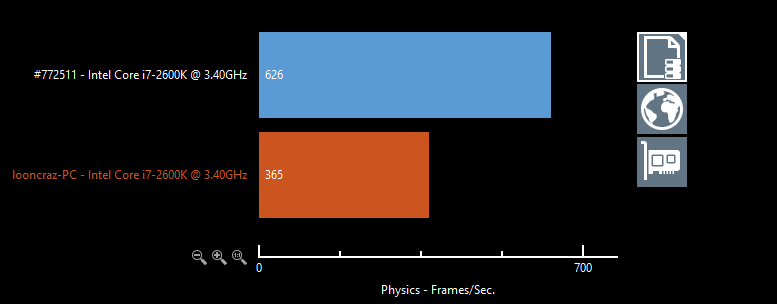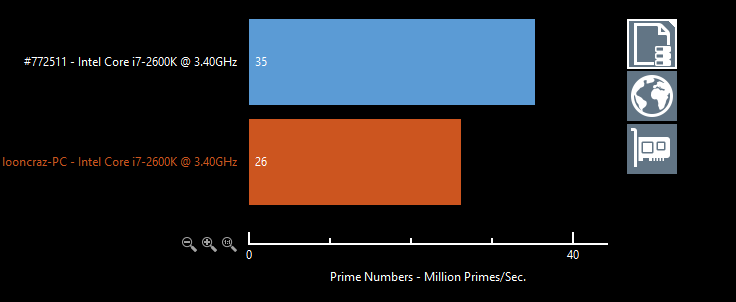Physics and Prime numbers are dual channel aided,
I ignore those.
Aida64 is far better as Ryzen can push 50+Gb/s on dual channel, an i7 7700K can barely do 35.
Hm...
http://techreport.com/review/31179/intel-core-i7-7700k-kaby-lake-cpu-reviewed/4
You. Are. Wrong. Ah, yes, it was with 3866 MT/s but you did not specify on what MT/s rating does Ryzen push the 50+GB/s. Not on 2133 MT, that's for sure.
The CPU Mark score is tainted by low physics and prime scores - which are both related to the memory problems AMD has apparently now solved (we'll see...).
I ignore those. Let's just look at fp/compression/sorting, that give us our single threaded score, shall we? I found a random PT9 6900k baseline that reports as stock clocked 6900k with STOCK MEMORY (that's important one, right?).
Test: Ryzen ES/6900k and comment on performance per clock.
FP: 15256/15145, but 6900k obviously runs at 3.5Ghz against 3.6ghz. That makes the latter 2% faster. We can call that a tie if you wish.
Sorting: 15709/18501, that makes the latter 21% faster.
Compression: 25505/28192, that makes the latter 13% faster.
Encryption: 4005/3961, they are virtually equal here.
SSE/AVX test in PT9: 742/817, the 6900k is 13% faster.
Integer test, for consistency sake: 41306/36369, Ryzen utterly humiliates 6900k with like... 10% more performance per clock.
Single threaded test: 1980/2168, with 6900k presumably running at 3.7Ghz, makes 6900k... 12% higher perf/clock in single threaded test, and well, average of first 3 tests in this table is.... 12%, thus validating my own calculations.
Just in case you want to verify it yourself, the baseline for 6900k used is #651748.
Post scriptum. The guy over at reddit who was actually witnessing the BF1 demo did comment that Ryzen had lower fps than 6900k there, so i have no clue where the rumor that Ryzen was "faster than 6900k in BF1" comes from.
And make no mistake, even with all that, it still makes Ryzen a damn appealing CPU.





